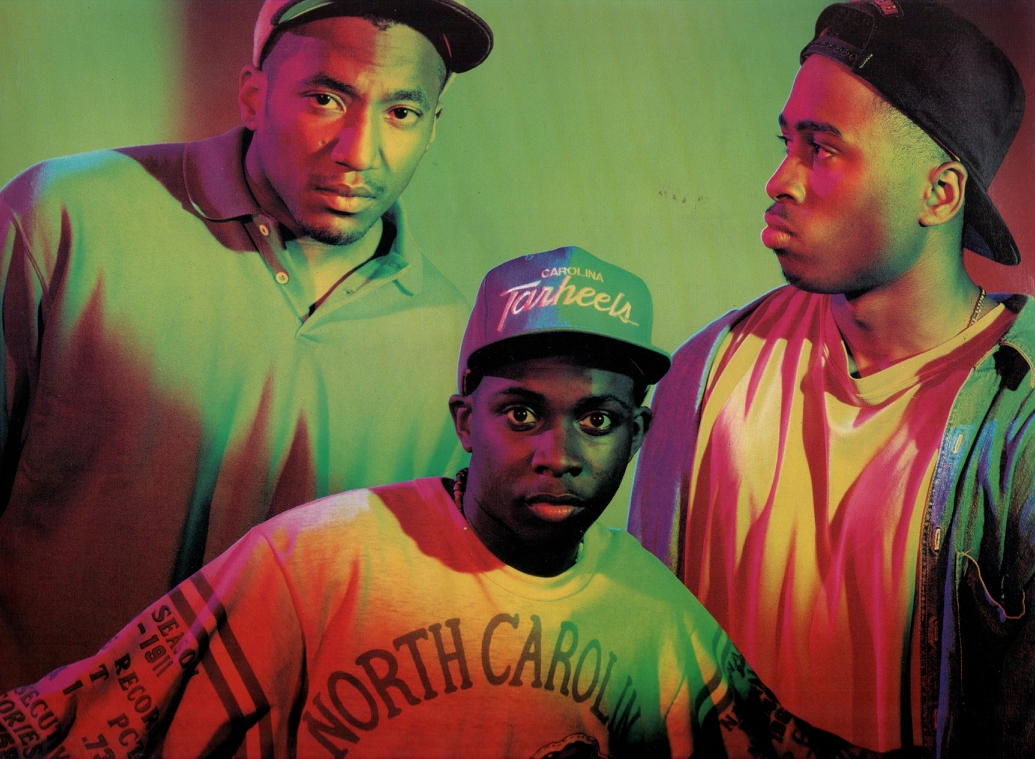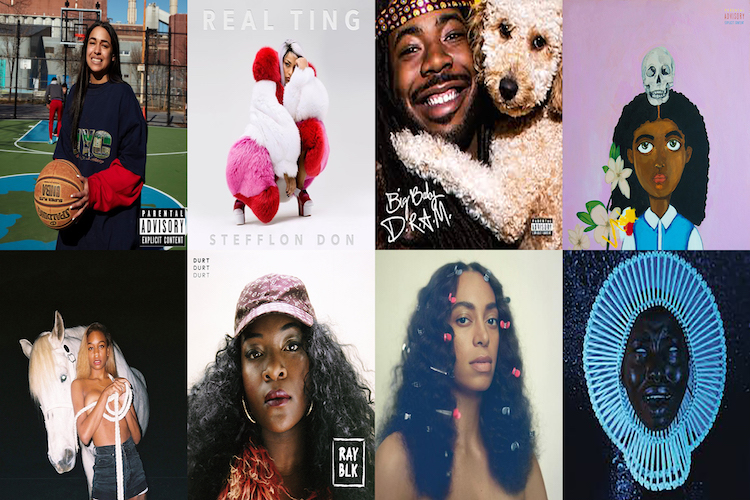
We got it from here… thank you 4 your music, A Tribe Called Quest
Natty Bakhita Kasambala
20 Nov 2016
Without aiming to repeat what has already been said many a time in the last few months, 2016 has been a bit of a shambles. Politics and xenophobia aside (if only it were that easy), we have lost more musical icons this year than we would have probably hoped for – Prince, Bowie, Leonard Cohen, Maurice White and Phife Dawg, to name but a few. But alas, the Music World taketh away, and the Music World giveth back.*
In the week that saw America one-up the UK in a how-to guide of creating a tense political climate, throwing Western politics into full-blown meme status, A Tribe Called Quest graced our ears with their first collaborative album in 18 years. Rejoice. From the revolutionary Basquiat-esque album artwork by Richard Prince, to the open, dedicative album title, We got it from Here… Thank You 4 Your service, this is the album we needed right now. The album is in loving honour of Phife Dawg and of our hopes for progressive societies founded on liberal concepts. In the words of the opening track, ‘The Space Program’, this album should serve as our motivation to “get it together” and make something happen.
Instead of gushing endlessly about how this album has provided me and my dad with the perfect soundtrack on long drives for the foreseeable future, here are some of the lessons I’m taking from this album after sitting with it for the last few days of solemn reflection.
Numero uno. They still got it. I know this sounds obvious but after discussing this album’s merits with my own friends, we reflected on rappers of the same ilk and from the same era as A Tribe Called Quest, and struggled to name one that has been able to maintain this level of killing-it factor across decades, especially with such a long hiatus in the middle of it. Alright, De La Soul, but you get my point. Q-Tip’s voice still flows across the loops of funk and jazz with the same youthful tone and playful changes of cadence as it always has, as if not a day has passed.
It’s also important to shout out the insane talent he possesses when not at the microphone. Not only did Q-Tip produce this album, he also plays at least one instrument on every single track, vocals aside. Mad.
Honorary Tribe member, Busta Rhymes is hugely present in the record, perhaps filling the shoes of Phife Dawg as hinted at in ‘The Donald’, and he’s more versatile than ever. On ‘Solid Wall of Sound’, we are reminded of the energy with which he is able to merge hip-hop and patois, while he switches tongues on ‘Dis Generation’ and remains equally powerful. Jarobi shines on the vulnerable ode to Phife, ‘Lost Somebody’, with a nostalgic husk and rhythm to his words that takes you right back to their early albums before his departure, in a good way.
And it’s not just the rappers that step up to the plate: the ideas, production and arrangements on the album are enough to make a grown me swoon. ‘Melatonin’ is a personal favourite of mine, an afro-futuristic song about amnesia, anxiety and the rationalisation of drug use and abuse, serenaded by the silken voices of Floetry’s Marsha Ambrosius and singer Abbey Smith.
Secondly, though this album immortalises Phife Dawg through his seamless integration, it also feels like a punch in the gut as the loss hits you all over again. Jarobi is quoted saying that “doing this album killed him, and he was very happy to go out like that.” The fact that he was the main force behind pushing a full reunion, an offer accepted by Q-Tip after the 25th anniversary performance on Jimmy Fallon last year, makes it equally heartbreaking to listen to the tribute made to him in the closing track of the album.
After reconciling with Q-Tip and encouraging the regroup, the self-identified “funky diabetic” died at the young age of 45 in March but is present throughout the album and his lyrics are uncompromised. The merging of Phife and Tip’s voices throughout the album has a nostalgic presence, particularly on ‘Black Spasmodic’ where they rap together above an infectious, syncopated reggae-like rhythm. The twists of Trinidadian lingo with philo-political commentary are executed with such ease and it’s tempting to wonder whether his death was an unlucky interruption to the great work he was doing, or it was in some way his final send off. Either way, we are reminded of his right to remembered as one of the good ones and why we’ll miss him.
The last lesson I take from this album is a message of hope. I don’t know if it just the Musical Youth sample on ‘Dis Generation’ from ‘Pass the Dutchie’ that got me feeling empowered, but this album gave me the tingling feeling that not all is lost. Not only was the timing perfect, but it would also be wrong to ignore the political pointedness of aspects of this record. ‘We The People’ is unashamedly a call to arms, against racism, sexism, homophobia and classist politics. It’s anthemic in its layering of rock guitars and drums, topped with Q-Tip’s directed lyrics, produced to sound almost like a PSA announcement in some dystopic uprising. He references someone as being in a “killing-off-good-young-n***a-mood”, which I can only take as a reference to the current issue of police brutality in the States. The track then goes on to innocently sing a lullaby hook, echoing the anti-immigration, white supremacist rhetoric of America’s new president-elect with shocking and uncomfortable transparency. Despite all this, the songs’ aims are not to leave you disenfranchised, but rather reassured of your own power, against the damaging sentiment.
Ultimately this album culminates as this epic celebration, both as a reconnection of the group and one’s own relation to it – what has been and can be. To appropriate a phrase from Gwyneth Paltrow and Chris Martin, the conscious coupling of the old and the new is also what makes this album so exciting. Hearing the velvety tones of Anderson .Paak, the scattered poetry of André 3000, the ultimate bars of Kendrick and the mumblings of Kanye are mere icing on the cake. This hip-hop group from Queen’s have done it again, almost two decades later, 16 songs, endless beats, flows for days. While there seems to be some speculation over the exact meaning of the title, I think it makes perfect sense. The finality that Phife’s death inevitably brings with it, as the final Tribe album, acts almost as a ceremonial passing of the buck. They’ve shown themselves to not only be greats, but also to be timeless. Phife Dawg, we got it from here, thank you for your service.
*Adapted for optimistic musical purposes.









